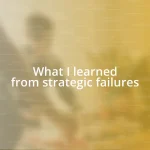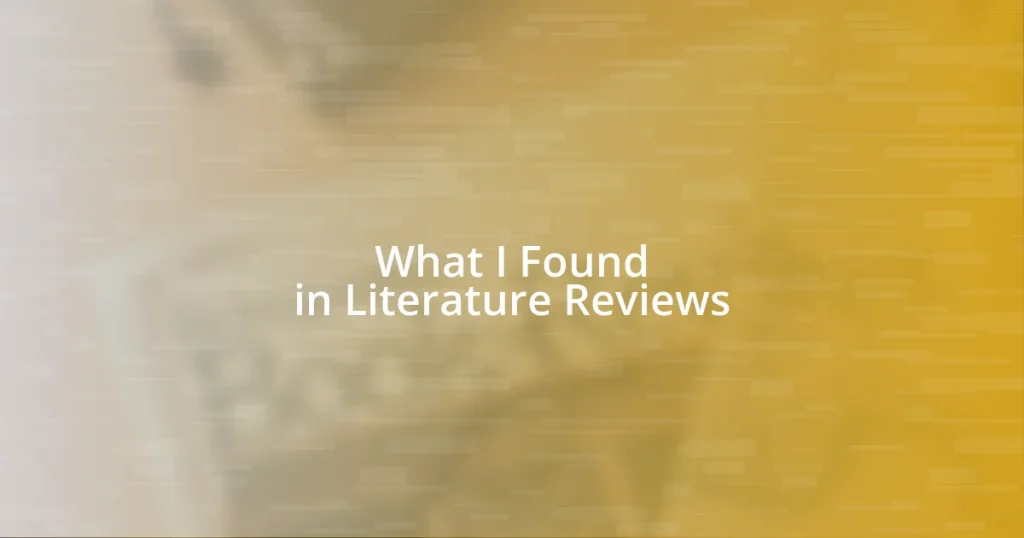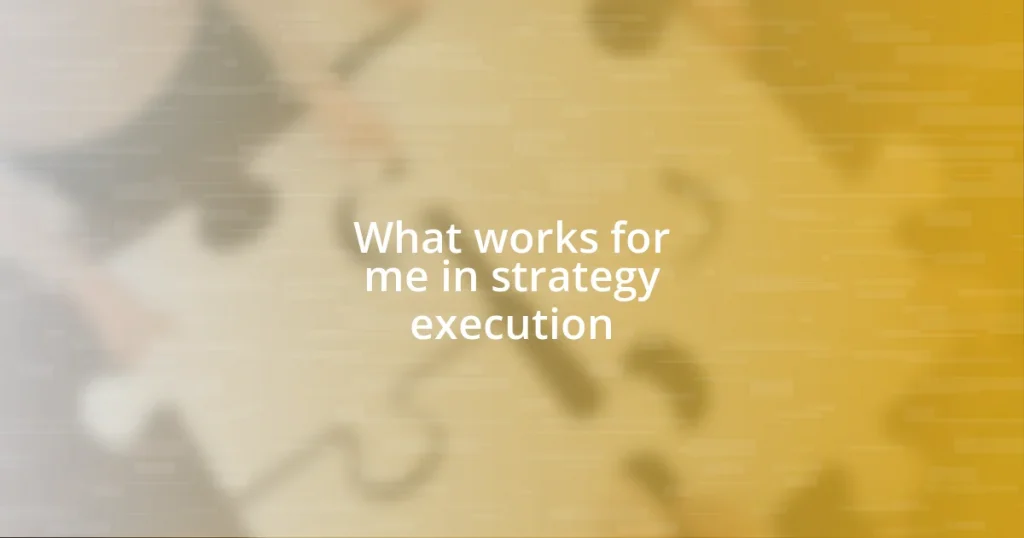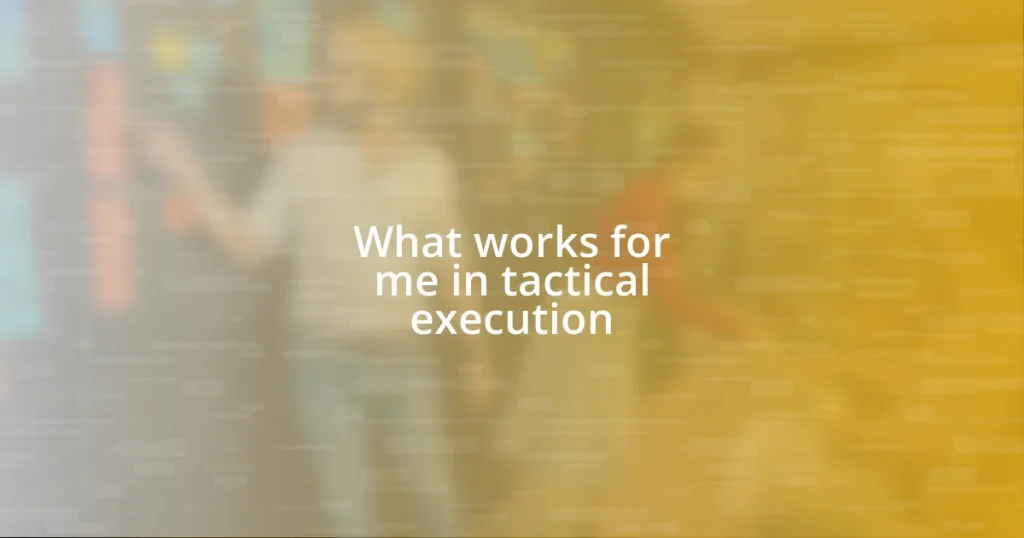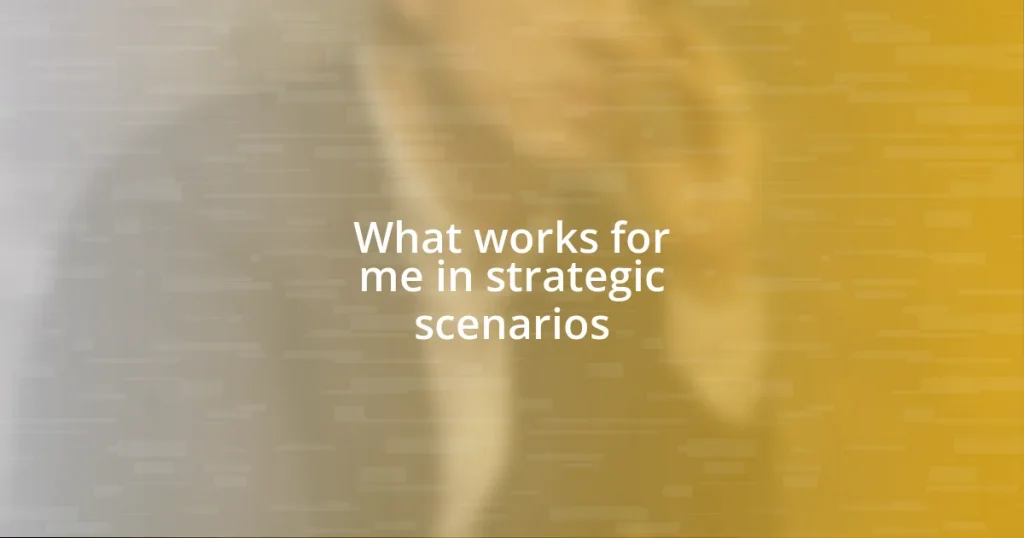Key takeaways:
- Literature reviews serve to synthesize existing research, identify gaps, and guide new research directions, transforming them into essential tools for scholarly work.
- Employing a systematic methodology enhances the quality of literature reviews, emphasizing the importance of tailored research questions, iterative searches, and thorough documentation.
- Future trends in literature reviews point toward automation and interdisciplinary approaches, alongside a push for open access publishing, making research more efficient and accessible.

Understanding Literature Reviews
Understanding literature reviews is like peering into a vast conversation among researchers. When I first encountered one, I felt overwhelmed by the sheer volume of studies and perspectives to sift through. It’s fascinating how these reviews not only summarize existing research but also highlight gaps and inconsistencies—sometimes, they can make you question everything you thought you knew about a topic.
As I delved deeper into constructing my own literature reviews, I found them to be an exploration of ideas and narratives. Each source adds a brushstroke to the larger picture, and I often wondered, “What stories are these studies trying to tell?” The emotional aspect of uncovering not just facts, but the implications those facts carry, really struck me. It’s a little like being a detective, piecing together clues to form a coherent narrative that justifies further research.
Moreover, engaging with literature reviews has taught me the importance of critical thinking. It’s not just about gathering information; it’s about synthesizing that information into something meaningful. I remember a particular project where I identified a significant gap in the literature that sparked my interest—and I was thrilled to see how it influenced my subsequent research direction. Have you ever had an experience where a literature review changed your view on a topic? If so, you know how impactful comprehending these reviews can be for personal and professional growth.

Purpose of Literature Reviews
The primary purpose of literature reviews is to establish a comprehensive understanding of the research landscape surrounding a specific topic. I remember when I first tackled a complex subject; I felt as though I was walking into a crowded room where everyone was talking, and I needed to discern which conversations mattered most. By synthesizing key findings, a literature review not only contextualizes your research but also defines its significance within that ongoing dialogue.
- It identifies gaps in research that provide opportunities for further study.
- It illustrates how existing studies connect and contrast with one another.
- It builds a foundation, allowing scholars to develop new theories or hypotheses based on previous work.
- It serves to validate your research question by showing its relevance in the context of existing knowledge.
Realizing these purposes transformed how I approached my own work. I didn’t just view a review as a prerequisite but as a powerful tool that guides my research journey. It’s exhilarating to think about how a well-constructed review can illuminate pathways I hadn’t considered before.

Methodology for Conducting Reviews
When it comes to conducting literature reviews, I’ve found that employing a systematic methodology can make a world of difference. Initially, I approached my reviews haphazardly, often chasing after sources without a clear strategy. However, I soon discovered that having a structured process—such as defining clear research questions or criteria—helps not just in organization, but in the quality of synthesis as well. It’s almost like following a recipe; each step builds upon the previous one, leading to a more cohesive end product.
One aspect that I particularly cherish is the iterative nature of this methodology. I recall a project where I started with a broad search for studies related to education technology. As I reviewed initial findings, I often shifted my focus based on emerging themes, which allowed me to refine my research question as I went along. This flexibility is key in literature reviews, enabling me to adapt and evolve my understanding as new insights emerge.
Lastly, documenting every stage of the literature review process is invaluable. I learned this the hard way; during one of my reviews, I neglected to keep track of where I sourced specific information. It was incredibly frustrating trying to remember which article presented a certain key argument. By maintaining organized notes and summaries throughout, not only do I save time but I also enhance the clarity of my final review. This simple habit has saved me countless headaches, reinforcing just how impactful effective methodology can be.
| Methodology Steps | Importance |
|---|---|
| Define Research Questions | Guides focus and direction of the review |
| Conduct Iterative Searches | Allows for refinement of themes and questions |
| Document Findings | Ensures clarity and easy reference for writing |

Key Findings from Literature Reviews
Key findings from literature reviews often unveil surprising trends and themes that can reshape our understanding of a topic. For instance, while diving into research on mental health interventions, I stumbled upon multiple studies suggesting that peer support was more effective than traditional therapy in certain contexts. This revelation shifted my perspective on mental health treatment possibilities and made me wonder: Are we underestimating the power of community in healing?
One of the intriguing patterns I’ve noticed is the cyclical nature of research findings. During a literature review on renewable energy, I found it fascinating how many studies peaked in interest only to fall out of favor, only to be revived later when new technologies arose. It sparked a thought in me—how often do we abandon ideas that are simply ahead of their time? This iterative process of research reflects not just what is current, but also what may evolve into something significant later on.
Moreover, literature reviews frequently highlight the importance of context. In reviewing studies on educational outcomes, I found that socioeconomic factors were mentioned over and over again as critical influences. This made me reflect on my own educational experiences—how many opportunities did I have that others didn’t simply due to their circumstances? This realization underscored how literature reviews can guide us in addressing not just the “what,” but also the “why” behind research findings, which is pivotal in shaping future studies.

Common Challenges in Literature Reviews
The quest for comprehensive literature can feel overwhelming, and one significant challenge I’ve faced is the sheer volume of available studies. I remember sitting in front of my computer, sifting through thousands of articles, which seemed to blur together after a while. It’s a bit like trying to find a specific star in the night sky—daunting and confusing. How do we determine which articles genuinely contribute to our understanding? This often leads to falling into the trap of confirmation bias, where I’d favor studies that aligned with my preconceived notions instead of challenging them.
Another hurdle is the inconsistency in how research is reported. I’ve noticed that different authors have various ways of presenting their data and conclusions, often using different terminologies for similar concepts. For instance, two papers could address “educational technology” and “digital learning tools”, and it took me a while to connect the dots between them. It made me question: Why is there so much variability, and how can we bridge these gaps? This experience showed me the necessity of being adaptable and truly diving deep to ensure a thorough understanding.
Finally, I often grapple with synthesizing conflicting evidence—a common reality in literature reviews. In one review, I encountered articles that championed traditional learning methods while others ardently supported innovative, tech-based solutions. Honestly, it felt like a tug-of-war between established beliefs and new trends, leaving me pondering which side truly had the upper hand. This situation urged me to embrace a more holistic view, appreciating the nuances rather than forcing a black-and-white conclusion. After all, can’t we find value in both perspectives if we take the time to understand their contexts?

Tips for Effective Literature Reviews
When it comes to crafting an effective literature review, creating a clear and organized outline is crucial. I recall working on a complex topic, feeling entirely overwhelmed until I drafted a roadmap of key themes. This act not only simplified my search but also allowed me to see connections I hadn’t noticed before. Have you ever felt lost in a sea of information? An outline can act as your beacon, guiding you through the fog.
Another tip I’ve found invaluable is to stay critical and open-minded about sources. Early in my research journey, I tended to accept studies at face value, thinking they were inherently trustworthy. However, I learned to question the methodology and the biases that might skew their findings. For example, I remember a study that didn’t disclose its funding source, making me wary. By adopting a more skeptical lens, I improved the quality of my literature reviews dramatically. After all, isn’t it essential to dig deeper rather than just scratch the surface?
Lastly, integrating your own voice into the review can give it a unique edge. During a review on social media’s impact on self-esteem, I infused my reflections on my own experiences with platforms like Instagram. It’s surprising how personal anecdotes can enliven the writing and connect with readers on a human level. When was the last time a piece of research truly resonated with you? Often, it’s those personal stories woven into the analysis that stay with us long after we’ve read them.

Future Trends in Literature Reviews
Future trends in literature reviews are increasingly leaning towards automation and AI-driven tools. I’ve personally started experimenting with software that identifies relevant studies based on keywords and provides summaries, which saves me hours of searching. Can you imagine how much more efficient our research processes could become if we let technology handle the grunt work?
Furthermore, I see a growing emphasis on interdisciplinary approaches. For instance, when I tackled a literature review on health interventions that included psychological, social, and technological factors, it opened my eyes to perspectives I hadn’t considered before. It’s fascinating how the blending of ideas from different fields can lead to more holistic insights. How often do we stick to our own academic silos, missing out on valuable contributions from other disciplines?
Lastly, there’s an increasing push for open access publishing, which I wholeheartedly support. I’ve often felt frustrated by paywalls that block access to crucial studies. I remember a pivotal research paper I encountered but couldn’t read due to subscription fees. Moving towards a model where literature is freely accessible not only democratizes knowledge but also enriches the quality of literature reviews. Isn’t it essential to ensure that everyone, regardless of institutional affiliation, can contribute to and benefit from academic discourse?









